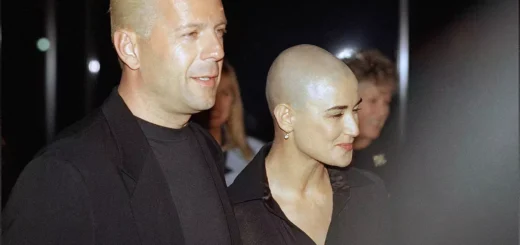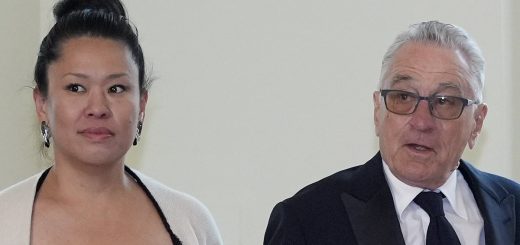At one point, ex-girlfriend Marie Osmond even took legal action to stop the “Shadow Dancing” singer from calling her, as told by author Bob Stanley in the just-released biography “The Story of the Bee Gees: Children of the World.”
Andy was the younger brother of Barry, Robin and Maurice Gibb, who found international fame as the Bee Gees.
After growing up in Sydney, Australia, Andy followed his brothers into the pop scene and hit it big thanks to Barry writing the songs “I Just Want to Be Your Everything” and “[Love is] Thicker than Water” for him. Both songs shot to the top of the charts in 1977, and Andy became a heartthrob.
That same year, Andy — still just 19 years old — and wife Kim Reeder moved to West Hollywood, where he quickly became ensconced in the drug scene.
Reeder retreated to Australia, and gave birth to their daughter, Peta, in January 1978. The couple divorced later that year, leaving Andy free to date his way through Hollywood.
Still a teen, he started seeing starlet Susan George (“Straw Dogs”), eight years his senior. According to the book, Andy would lounge around on his expansive bed in the room — where the home’s previous owner, a drug lord, had been shot dead — staring at the mirrored ceiling and playing with guns.
Against all odds, he also dated fellow music star Marie Osmond — well known as a squeaky clean Mormon.
“He was doing tons of drugs and she didn’t even drink Coca-Cola,” record producer Albhy Galuten says in the book.
It was, unsurprisingly, a bad match.
“The Osmond family turned him away,” writes Stanley, and “Marie took legal action to stop him calling.”
Gibb’s next serious love was “Dallas” star Victoria Principal, who struggled to deal with Andy’s addictions.
“When she forced him on the spot to choose between staying together or leaving her for cocaine and alcohol, he told her he’d have to leave,” writes Stanley.
It didn’t help that Andy felt inadequate compared to his brothers’ — especially Barry’s — achievements and talent.
“I didn’t have any confidence,” Andy admitted to an interviewer. “I always thought that people were buying my records as an extension to the Bee Gees and I never thought there was an individual thing in there they liked.”
For a spell, he lived in Miami on a giant houseboat called “Shadow Dancer,” a nod to one of his hit singles, with a pet lion cub for company. When the cub grew too big for the boat he gifted it to the Miami Zoo — and had to be talked out of buying a pet giraffe.
After the Bee Gees ended their 1979 tour, Barry went straight into the studio to help Andy finish recording his third solo album.
Music producer Galuten remembers Andy being “in such bad shape” that Barry ended up singing for his younger brother on most tracks.
“It wasn’t an Andy album anymore,” the producer confessed. “It was Barry trying to rescue his brother. He was a basket case.”
Andy’s voice had been wrecked by cocaine and Quaaludes, Stanley writes, and it cost him lucrative work.
The singer won, then lost, the lead role in “Joseph and the Amazing Technicolor Dreamcoat” on Broadway. He was fired from the syndicated TV music show “Solid Gold.”
“People kept giving him chances and, without fail, Andy blew them,” writes Stanley. “As early as 1982 he had been selling his belongings to make ends meet, flogging his jewelry for cash on Sunset Boulevard.”
By 1987, Andy was finally clean — but also broke.
“He had filed for bankruptcy…and was living on a weekly $200 allowance from his family,” Stanley writes.
The Grammy nominee sporadically kept in touch with his ex-wife and daughter, Peta. But, according to the book, “management and family prevented [Reeder] from actually contacting Andy.”
“Peta and I were outcasts from the Gibbs,” noted Reeder. “I once sent him pictures of Peta but I had to do it through the fan club.”
Andy finally moved to the UK to live with his brother Robin, but he was still “skipping meetings, refusing to pick up the phone,” Stanley writes. Depressed, Andy even told his mother, “I might as well be dead.”
A few days after Andy’s 30th birthday, his mother took him to a London hospital as he was suffering from chest pains.
The following morning, the singer “slumped into unconsciousness as he was talking to the doctor” and was pronounced dead from myocarditis — an inflammation of the heart that can be caused by illicit drugs.
The Gibb family never fully recovered from the grief of losing their baby.
“In many ways, I think we’ve all refused to accept he’s gone for good,” said Maurice. “His death has definitely brought the rest of the family closer together. We are united in our devastation.”












